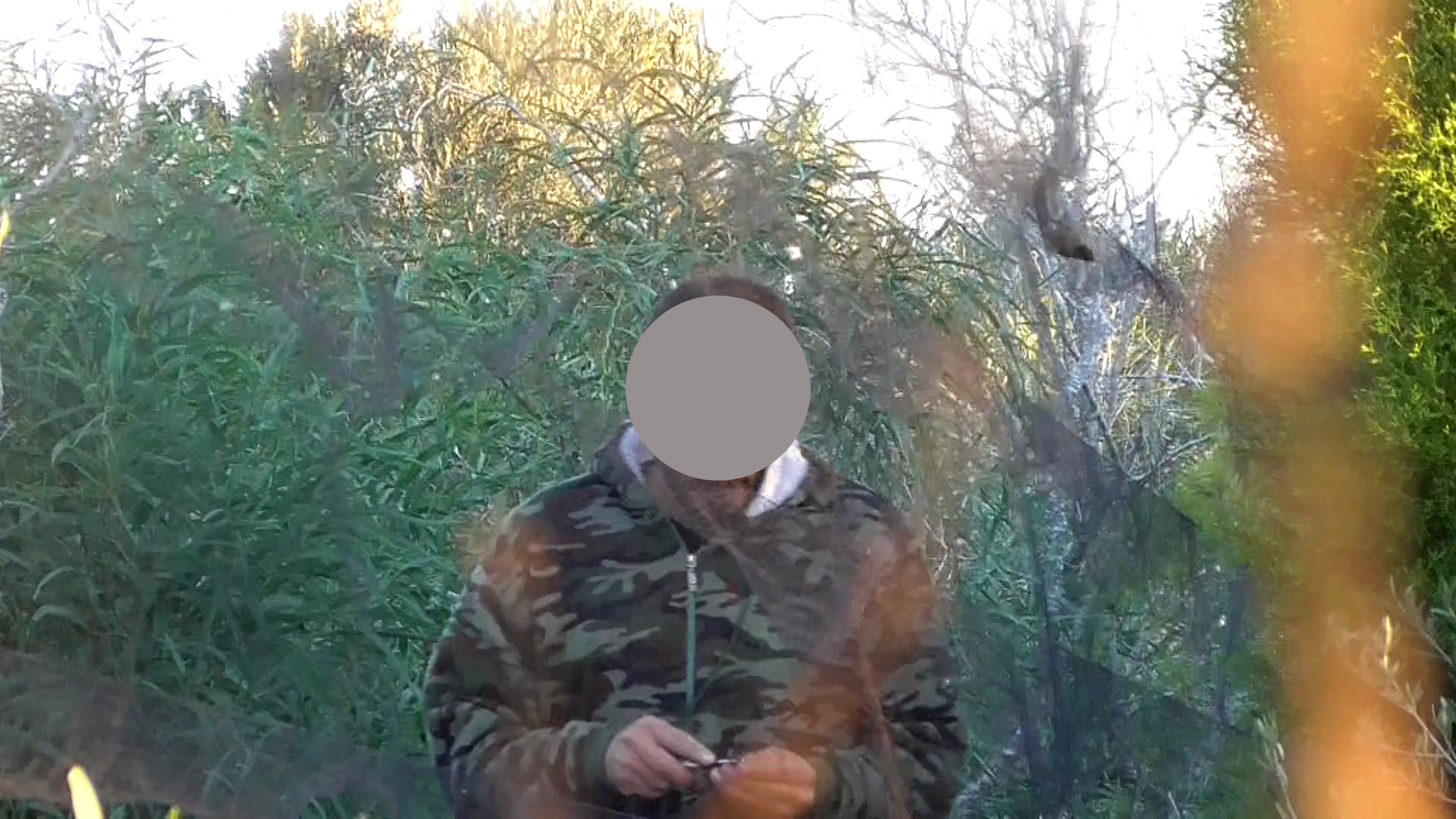
Newsroom
A huge drop in illegal bird trapping is hailed as a big success following an unprecedented crackdown by authorities, but experts warn that more work is needed to prevent poachers from making a comeback.
An estimated 610,000 birds are believed to have been killed illegally in 2017, a direct result of a massive and lucrative criminal enterprise on the island. But despite the large numbers, the levels last year were 79% lower compared to 2002, according to environmental advocate group BirdLife Cyprus.

Efforts by British Bases (SBA) Police and Cypriot authorities have helped reduce illegal bird trapping, which was mainly being carried out with the unlawful use of mist nets. The NGO group says that data from a surveillance programme, launched in 2002, show that at least 6.5km of mist net setups were active during autumn 2017.
The director of BirdLife Cyprus, Martin Hellicar, praised the coordinated efforts and some changes in the law that played a role in reducing bird trappings of protected bird species on a large scale.
“Effective enforcement efforts of all competent authorities in combination with the imposition of deterrent penalties for offenders have brought welcome relief in the trapping situation,” Hellicar said.
The killing is far from over
SBA police have for years been trying to weaken the capabilities of criminals by removing acacia trees, planted by locals for the sole purpose of trapping birds illegally. But this effort came to a halt in 2016, following public protests by pro-trapping locals and their communities, forcing SBA operations to turn their attention to the removal of makeshift irrigation systems used to water the acacia.
But additional methods of bird trapping still thrive and Hellicar says a recent change in legislation actually lowers the fine for using limesticks down to a mere €200. Using this method, trappers put a sticky substance on sticks and lure birds often with the sound of songbird calls played through loudspeakers hidden behind shrubs and under acacia trees.
“Now is the time to re-double efforts and make sure we see a permanent end to large-scale trapping and the massive impact it has on our birds”
“Now is the time to re-double efforts and make sure we see a permanent end to large-scale trapping and the massive impact it has on our birds,” Hellicar was quoted as saying on the NGO’s website.
The market for ambelopoulia, the term used for illegally trapped birds served as delicacies, is a multi-million indistry that not only has the support of some local communities but also enjoys protection from people and groups who go to great lengths to use violence or threat of violence to protect their business.
Cypriots pay a hefty price for ambelopoulia, which are typically served in restaurants in clear violation of the law. Despite serving the illegal dish in secrecy, often outside normal hours, little has been done to combat the illegal activity according to BirdLife Cyprus.
New campaign
A statement on BirdLife Cyprus’ website called for more action, cautioning that similar decreases in trapping in the past did not help solve the problem once and for all.
“The decrease in trapping levels can in no way be interpreted that the illegal bird trapping problem has been solved. Similar reductions have been recorded in the past and only a few years later trapping levels increased dramatically and eventually reached the record levels of the past years,” the statement said.
New campaigns have been launched against illegal bird trapping, including commercial signs on highways that ask people to break the tradition and let the birds fly.
“It is therefore vital that the positive results of 2017 be built upon and ‘nailed down’ through ongoing enforcement action at all levels in order to avoid any reversal and to continue on this encouraging decrease in trapping levels,” BirdLife Cyprus also said in the statement.































